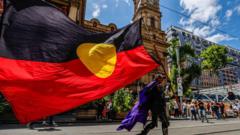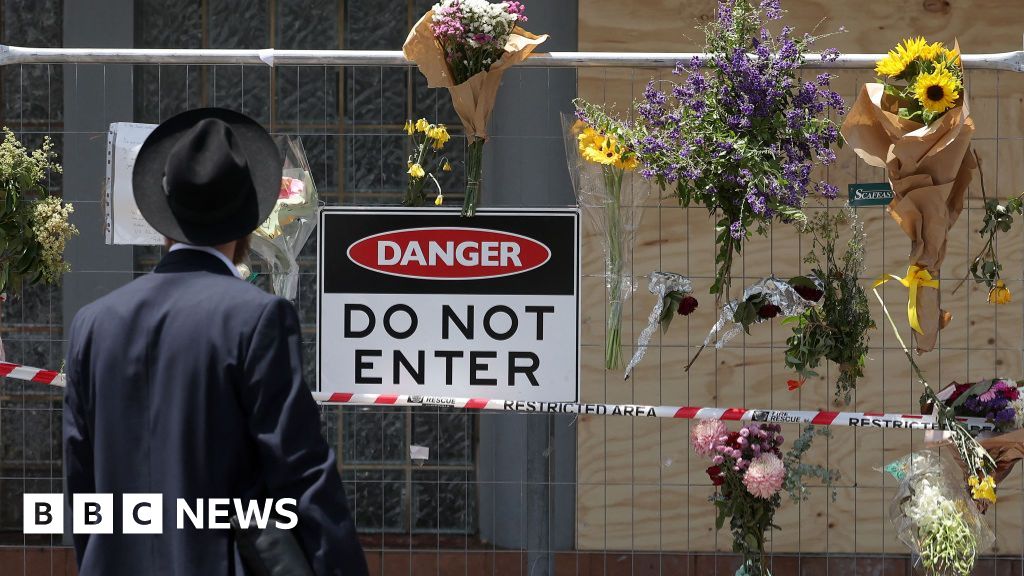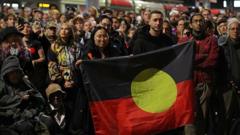Australia is gearing up for its national election, yet in Yarrabah, a small Indigenous community in Far North Queensland, one can't help but notice the conspicuous absence of campaign activity. This stark contrast is highlighted by the uninviting silence concerning Indigenous issues as leaders from Australia's major political parties largely avoid discussions about First Nations’ concerns.
Suzanne Andrews, the chief executive of Gurriny Yealamucka Health Services, reflects this sentiment, expressing disbelief at the lack of visibility for candidates, with fishing nets and ice cream trucks clamoring for attention instead. Despite Indigenous Australians facing significant socio-economic disadvantages – representing about 3.8% of Australia’s population – politicians seem hesitant to engage in discussions surrounding this urgent topic.
This election period has seen both Prime Minister Anthony Albanese and Opposition Leader Peter Dutton sidestep meaningful dialogue on Indigenous matters, with Dutton's comments during a recent debate being one of the few mentions. He dismissed Indigenous "welcome to country" ceremonies as excessive, illustrating the ongoing cultural debates rather than addressing serious issues of disadvantage faced by First Nations peoples.
Experts suggest that political leaders refrain from Indigenous issues due to their divisiveness, especially since the Voice to Parliament referendum was overwhelmingly rejected by voters in 2023. This outcome, seen by many as a national shame, has led to a political reluctance to touch upon policies directly affecting Aboriginal and Torres Strait Islander communities.
Andrews recounts her initial hopes for progress post-referendum, which have turned into disillusionment as the conversation surrounding Indigenous policies has seemingly evaporated. Lidia Thorpe, an independent senator, laments that politicians, especially Albanese, now avoid any conversation about Indigenous Australians in fear of revisiting the referendum’s trauma.
In the wake of the failed referendum, a growing disinterest in Indigenous affairs has been observed, with decreasing public belief in the government's responsibility to address living standard disparities. Polls reveal a sharp decline in Australians prioritizing these issues, indicating they may not hold electoral weight among the general populace.
Bob Katter, an independent MP, and other political figures admit to avoiding discussions around Indigenous matters during campaigns, believing it would alienate voters. The referendum’s fallout has simultaneously intensified racism directed at Indigenous Australians, creating a climate of fear and hostility within communities.
As the election approaches, the absence of dialogue on vital Indigenous issues reflects a troubling trend. Community members like Andrews are discouraged, witnessing how political leaders, motivated by electoral survival, neglect the pressing needs and rights of Indigenous peoples they vowed to represent. For many, the struggle for acknowledgment and equity continues as a rising tide of silence washes over Australia's political landscape.




















